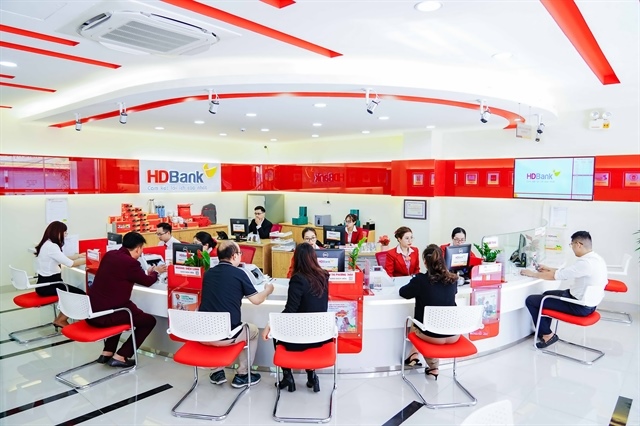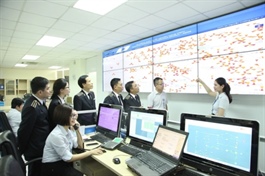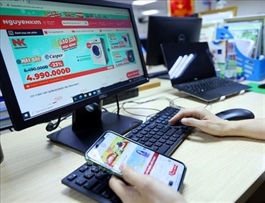ADB again recognises HDBank as leading partner bank in Việt Nam, expands trade finance tie-up
ADB again recognises HDBank as leading partner bank in Việt Nam, expands trade finance tie-up
The Hồ Chí Minh City Development Bank (HDBank -sticker: HDB) was once again honoured as the “Leading Partner Bank in Vietnam” by the Asian Development Bank at an award ceremony for the Trade and Supply Chain Finance Program in Singapore on September 3.
 |
An HDBank representative receives the “Leading Partner Bank in Vietnam” award from the Asian Development Bank at a ceremony in Singapore on September 3. — Photo courtesy of HDBank
The award underscores its strong capabilities and outstanding achievements in promoting trade finance and supporting sustainable development among Vietnamese businesses.
HDBank has affirmed its outstanding capabilities as one of the ADB’s partner banks, the one to which the ADB has granted the largest credit limit in Việt Nam.
In August 2024 the ADB raised the trade finance limit for HDBank for guarantees, trade finance and revolving credit facilities from US$145 million to $200 million.
This is a testament to the ADB's appreciation of HDBank's risk management capacity, transparency, and efficiency in cooperation, providing a fresh impetus for the bank to continue expanding its support to import-export businesses and value chains.
In its strategic partnership with the ADB, HDBank has not only focused on trade finance but also actively implemented environmental, social, and governance (ESG) initiatives.
With the support of ADB and other financial institutions, HDBank has achieved significant milestones in key technical projects that enhance sustainable development capabilities.
HDBank is participating in a technical advisory project to develop a green/sustainable credit portfolio, with funding from the ADB.
It is the only bank in Việt Nam participating in the second phase of the ADB-initiated project on supporting inclusive economic development of people with disabilities.
The bank also successfully completed the ADB Climate Tagging Project in July 2024, which improves the classification of trade finance transactions with positive climate impact.
 |
Customers conduct transaction at an HDBank branch in HCM City. — Photo courtesy of HDBank
As of the end of Q2 this year HDBank's total assets were worth over VNĐĐ624.4 trillion, a 3.7 per cent increase from the beginning of the year. The total loan balance grew by 12.5 per cent to nearly VNĐ386.2 trillion, and total deposits saw a 4.3 per cent increase to nearly VNĐ386.6 trillion.
In the first half of 2024 HDBank achieved pre-tax profits of nearly VNĐ8.2 trillion, an increase of 48.9 per cent over the same period last year, while its profitability and prudential ratios continued to improve.
In 2024 HDBank became the first lender in Việt Nam to publish a sustainability report, and it made a commitment to becoming a net-zero bank by 2050.
Speaking at the awards ceremony, Trần Hoài Nam, deputy CEO of HDBank, said: "With strong support from the ADB and international partners, HDBank is committed to further advancing its green and sustainable development strategy, particularly in areas such as renewable energy and efficient resource management. HDBank aims to continue contributing positively to promoting a green economy in Việt Nam, enhancing the competitiveness of businesses, and creating sustainable value for the community."
As of the end of 2023 ADB's cumulative disbursement of loans and non-refundable aid to both the public and private sectors in Việt Nam amounted to $12.79 billion, funded from ordinary capital resources, concessional ordinary capital resources, the Asian Development Fund, and other special funds.
With a commitment to helping Việt Nam achieve its Net Zero goal by 2050, the ADB seeks to enhance finance for green banking activities.
The ADB's support portfolio in Việt Nam focuses on programmes that transition the economy to greener growth, engage the private sector, promote social equity, enhance climate resilience, drive sustainable development, improve transportation connectivity, and alleviate poverty in remote and underdeveloped areas.


























